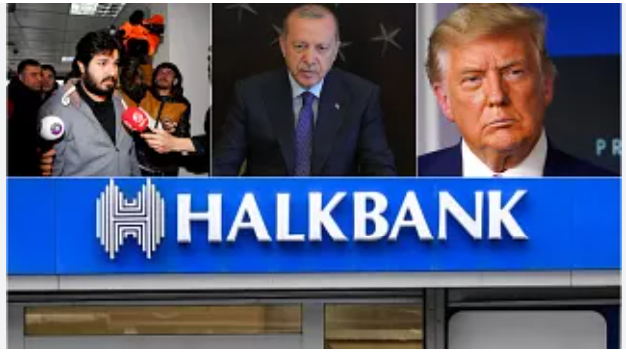After Supreme Court’s mixed verdict on Turkish lender, Halkbank, Reuters and CNBc.com posted articles to their websites, emphasizing different aspects of it. Turkish new sources preferred to focus on the Reuters translation, which stated “The justices in a 7-2 decision threw out a lower court’s ruling that had let the prosecution proceed. The court’s majority ordered the Manhattan-based 2nd U.S. Circuit Court of Appeals to reconsider Halkbank’ s effort to dismiss the case, but ruled out the bank’s contention that was is protected under a 1976 U.S. law called the Foreign Sovereign Immunities Act (FSIA)”. This translation stoked a massive rally in bank stocks, led by Halkbank shares in Borsa Istanbul, with the banking and general BIST-100 Index gaining 10% and 4%, respectively. Calmer analysis showed that the Supreme Court did not clear Halkbank of charges. In fact, it should have been known that it had no interest or authority to do so. Instead, it kicked the trial back to the lower court in Manhattan, which “leaves litigants and our lower court colleagues with an unenviable task, both in this case and others sure to emerge”, according to Justice Gorsuch.
It now appears Halkbank remains on trial, and its boss Erdogan still on the hook for massive financial penalties, if the lender were to be declared guilty.
PA Turkey referred to an article in New York Times, written by Adam Liptak to explain the salient points of the ruling:
The Supreme Court issued a mixed decision on Wednesday over whether the federal government may prosecute a state-owned bank in Turkey on charges that it had helped Iran evade sanctions imposed by the United States.
The court rejected the bank’s main arguments, based on federal laws that the bank said prohibited prosecutions of foreign nations and the companies they control. But it sent the case back to an appeals court for further consideration of another potential defense, drawing criticism from two dissenting justices for failing to issue a definitive ruling.
Justice Brett M. Kavanaugh, writing for seven justices, rejected the bank’s primary argument: that the Foreign Sovereign Immunities Act of 1976, which generally forbids civil suits seeking money from companies owned by foreign governments, also prohibits criminal prosecutions.
“We now hold that the F.S.I.A. does not grant immunity to foreign states or their instrumentalities in criminal proceedings,” Justice Kavanaugh wrote, adding: “Congress enacted a comprehensive scheme governing claims of immunity in civil actions against foreign states and their instrumentalities. That scheme does not cover criminal cases.”
But Justice Kavanaugh left the bank with a sliver of hope, saying that the federal appeals court in New York had not adequately considered whether immunity from prosecution was available under longstanding common-law principles unrelated to the 1976 law.
Justice Kavanaugh wrote that the appeals court should take a fresh look at the question of what the common law had to say about criminal prosecutions of foreign nations.
Justice Neil M. Gorsuch, joined by Justice Samuel A. Alito Jr., issued a partial dissent. He said the 1976 law governs the dispute and that it applies to both civil and criminal cases but does not stand in the way of prosecutions like the one at issue given an exception in the law for commercial activities.
Justice Gorsuch faulted the court for its failure to issue a clear ruling, saying the court’s decision “leaves litigants and our lower court colleagues with an unenviable task, both in this case and others sure to emerge.” He added that “many thorny questions lie down the ‘common law’ path, and the court fails to supply guidance on how to resolve any of them.”
He said the court should have simply let the prosecution proceed.
In short, Halkbank won the day, but will have to fight the whole battle once again, when the lower court sets a new trial date.
Follow our English language YouTube videos @ REAL TURKEY: https://www.youtube.com/channel/UCKpFJB4GFiNkhmpVZQ_d9Rg
And content at Twitter: @AtillaEng
Facebook: Real Turkey Channel: https://www.facebook.com/realturkeychannel/
